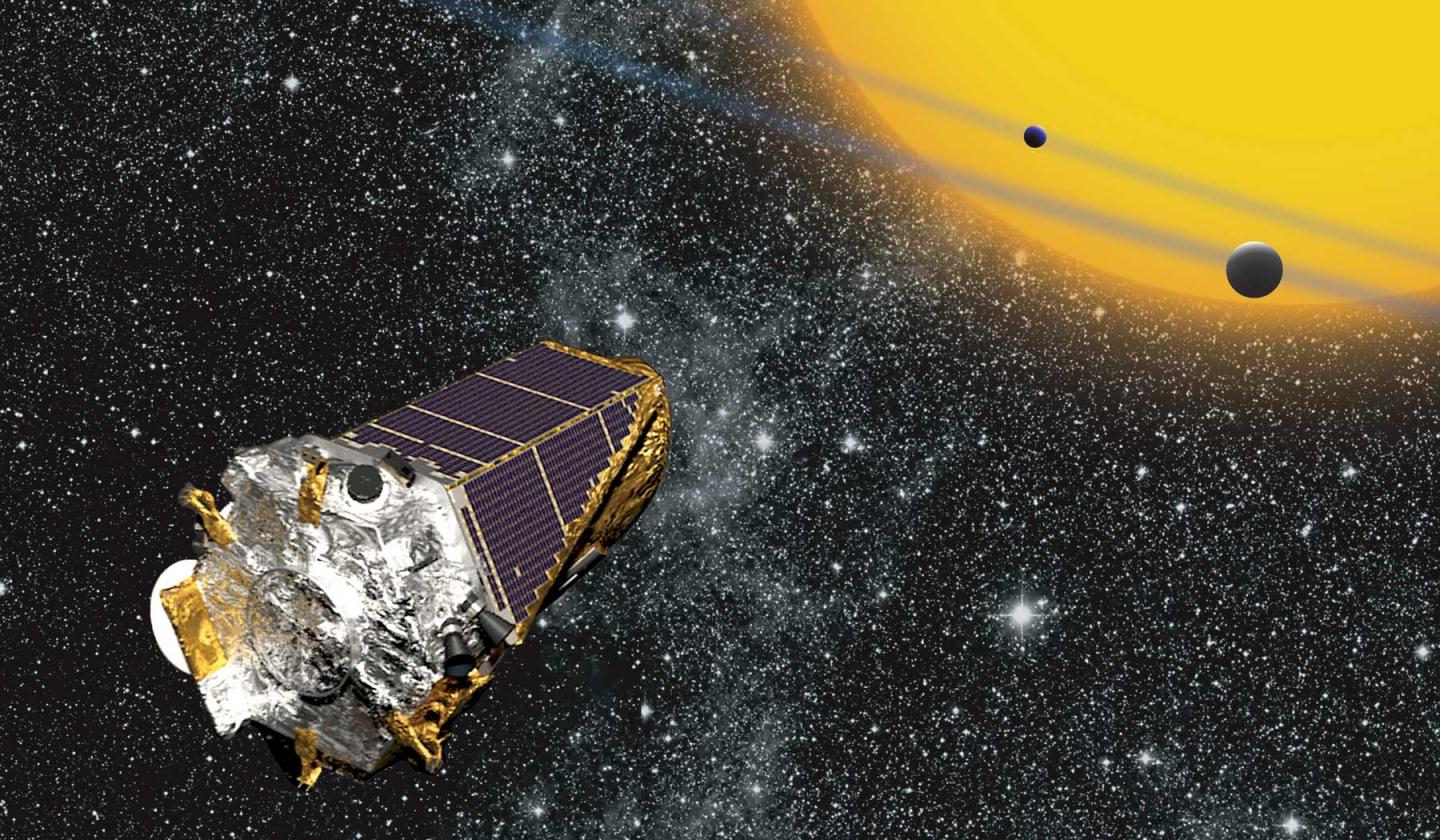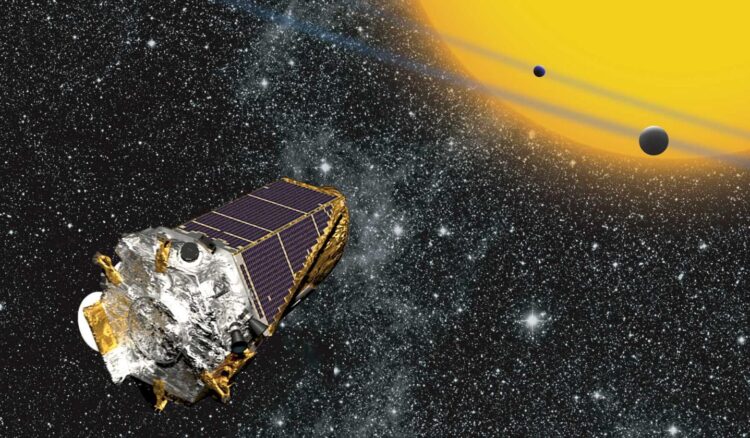There may be as many as one Earth-like planet for every five Sun-like stars in the Milky way Galaxy, according to new estimates by University of British Columbia astronomers.

Credit: NASA Ames/ W Stenzel.
To be considered Earth-like, a planet must be rocky, roughly Earth-sized and orbiting Sun-like (G-type) stars. It also has to orbit in the habitable zones of its star–the range of distances from a star in which a rocky planet could host liquid water, and potentially life, on its surface.
“My calculations place an upper limit of 0.18 Earth-like planets per G-type star,” says UBC researcher Michelle Kunimoto, co-author of the new study in The Astronomical Journal. “Estimating how common different kinds of planets are around different stars can provide important constraints on planet formation and evolution theories, and help optimize future missions dedicated to finding exoplanets.”
According to UBC astronomer Jaymie Matthews: “Our Milky Way has as many as 400 billion stars, with seven per cent of them being G-type. That means less than six billion stars may have Earth-like planets in our Galaxy.”
Previous estimates of the frequency of Earth-like planets range from roughly 0.02 potentially habitable planets per Sun-like star, to more than one per Sun-like star.
Typically, planets like Earth are more likely to be missed by a planet search than other types, as they are so small and orbit so far from their stars. That means that a planet catalogue represents only a small subset of the planets that are actually in orbit around the stars searched. Kunimoto used a technique known as ‘forward modelling’ to overcome these challenges.
“I started by simulating the full population of exoplanets around the stars Kepler searched,” she explained. “I marked each planet as ‘detected’ or ‘missed’ depending on how likely it was my planet search algorithm would have found them. Then, I compared the detected planets to my actual catalogue of planets. If the simulation produced a close match, then the initial population was likely a good representation of the actual population of planets orbiting those stars.”
Kunimoto’s research also shed more light on one of the most outstanding questions in exoplanet science today: the ‘radius gap’ of planets. The radius gap demonstrates that it is uncommon for planets with orbital periods less than 100 days to have a size between 1.5 and two times that of Earth. She found that the radius gap exists over a much narrower range of orbital periods than previously thought. Her observational results can provide constraints on planet evolution models that explain the radius gap’s characteristics.
Previously, Kunimoto searched archival data from 200,000 stars of NASA’s Kepler mission. She discovered 17 new planets outside of the Solar System, or exoplanets, in addition to recovering thousands of already known planets.
###
Media Contact
Chris Balma
[email protected]
Original Source
https:/
Related Journal Article
http://dx.





